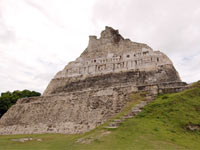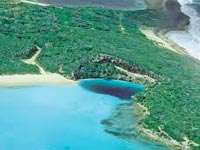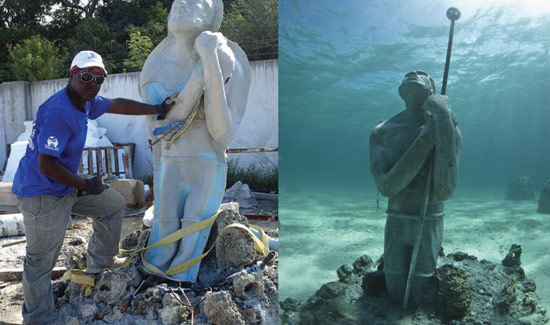
SAN IGNACIO, Belize — Findings from new research into the dramatic collapse of the ancient Maya Empire that covered Belize and much of the neighbouring region pose warnings we should heed now, Chaa Creek resort owner and environmental studies coordinator Mick Fleming said on Monday.
The recent report prepared by researchers from the Yucatan Center for Scientific Research and the UK’s University of Southampton ,and published in the journal Science suggest that the drought widely considered to play a significant role in the sudden decline of the ancient Maya civilisation was more moderate than previously thought.
And the findings may have relevance for us today, with predictions that even drier conditions worldwide are expected in the coming years due to climate change, the scientists said last week.
The study led by Martín Medina-Elizalde and Eelco Rohling examined lake and cave sediments to gauge past rainfall and found that a 40% drop in rainfall occurred in the Maya region in Belize, Guatemala and the Yucatan from about 800 to 1,000 AD – less of a decline than previously thought.
“What seems like a minor reduction in water availability may lead to important, long-lasting problems … Today, we have the benefit of awareness, and we should act accordingly,” Medina-Elizalde said, and added, “Let’s imagine that today, from one year to another, major cities can no longer supply fresh water to a third of their populations. “
Medina-Elizalde said that current models from the Intergovernmental Panel on Climate Change predict that there could be annual rainfall reductions of up to 50% in the Yucatan Peninsula by the end of this century.
“Some climate models suggest that local vegetation does contribute to increase rainfall significantly … which would suggest that by preserving the forests, we are mitigating the impacts of climate change,” he said. “Definitely, local governments need to start making serious efforts to mitigate and adapt to climate change in light of the forecast for the next decades.”
Fleming said that such findings were important for Belize, where forest cover, estimated at over 75% in the 1980 and then 62% in 2010, is disappearing at a rate of 0.6% a year, according to NASA and other studies.
“In the coming years, there will be increasing pressure to log these areas, and we already have a major problem with illegal logging practices. Here at Chaa Creek we maintain a 365-acre private nature reserve and strive to make people aware that our rainforest resources are not something that should exploited for short term gain by a few, but are a vital part of the world’s ecosystem that must be safeguarded for everyone’s benefit.
“Rather than people being worried about unsubstantiated and frankly harebrained Maya predictions about the end of the world, this sort of legitimate research shows that there are some very real lessons to be learned from the ancient Maya, and we ignore them at our peril,” Fleming said.



